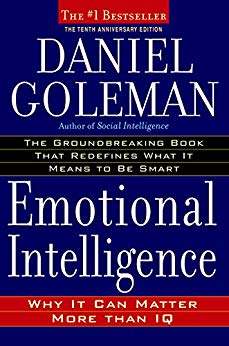

This article is an excerpt from the Shortform summary of "Emotional Intelligence" by Daniel Goleman. Shortform has the world's best summaries of books you should be reading.
Like this article? Sign up for a free trial here .
Do you feel anxious all the time? Do you have anxiety issues and have trouble coping? Do you want to stop worrying and being anxious?
Here’s a complete guide on understanding your anxiety, what it is, how NOT to manage your anxiety, and what to do.
Basics of Emotional Control
Once we are aware of our emotional responses as we’re having them, we can start to regulate them, working past emotions when they’re not appropriate to the situation, soothing ourselves when we’re experiencing negative emotions, and bouncing back quickly from setbacks. People who cannot manage their emotions expend a lot of energy fighting their emotional reactions.
There are 3 main emotions that are difficult to manage: anger, anxiety, and sadness. Here we’re talking about anxiety.
Here are general rules for managing any negative emotion:
- Don’t dwell on the emotion and keep mulling it over. Obsessing over an emotion doesn’t manage it–it actually extends the emotional reaction and can even increase your emotional distress.
- Self-awareness lets you catch a negative emotional response early and identify it. Once you do so, you can employ all the strategies you learned to deal with anxiety.
- Most negative emotional responses are built on thoughts or assumptions that confirm the response–so you can manage almost any negative emotional response by challenging the thoughts and assumptions that made you feel it in the first place.
Understanding Your Anxiety
What Anxiety Is
Anxiety is a form of worrying, a kind of rehearsal of what could go wrong and potential ways we might deal with it.
The goal of worrying is to come up with solutions by anticipating danger before it occurs. Too often it turns into a chronic, repetitive thought process, one that goes on and on but never actually gets to a positive solution because it keeps picking up new worries.
Chronic anxiety is an emotional hijacking beyond our control: worries seem to come from nowhere or be inspired by nothing, they’re impervious to reason, and cause the worrier to fixate on one or many anxiety-inducing topics.
There are generally two forms of anxiety to control:
- Cognitive anxiety is worrisome thoughts, usually triggered by language.
- Somatic anxiety is physiological symptoms of anxiety, triggered by images.
———End of Preview———

Like what you just read? Read the rest of the world's best summary of Daniel Coleman's "Emotional Intelligence: Why It Can Matter More than IQ" at Shortform . Learn the book's critical concepts in 20 minutes or less .
Here's what you'll find in our full Emotional Intelligence summary :
- What are emotions? Why do we have them?
- What is emotional intelligence? Why is it important?
- How do you manage your own emotions? Anger, anxiety, and sadness?
- How can you approach your relationships with more emotional intelligence?
- How can you teach your children emotional intelligence?
- How can emotional intelligence boost your career?






